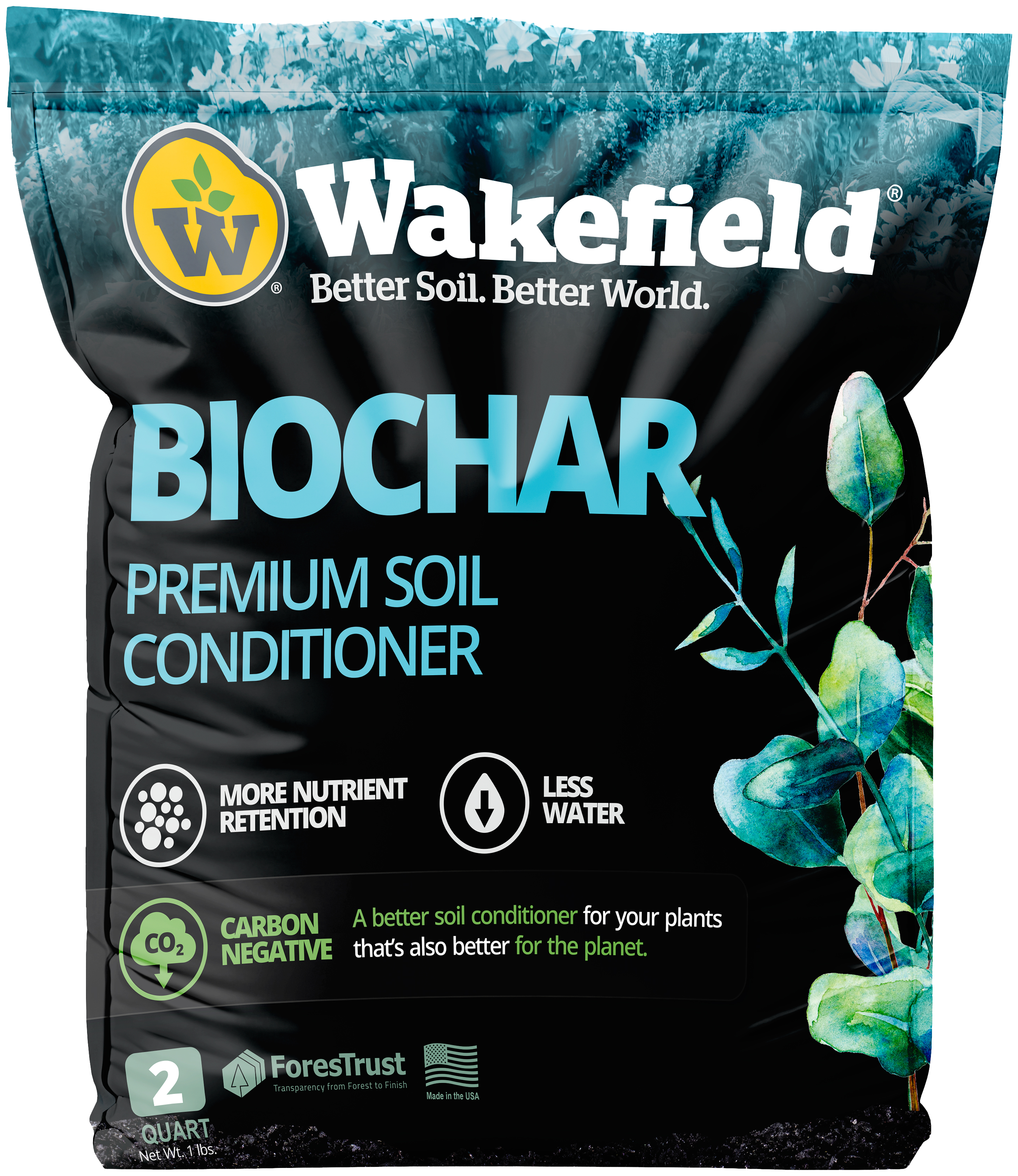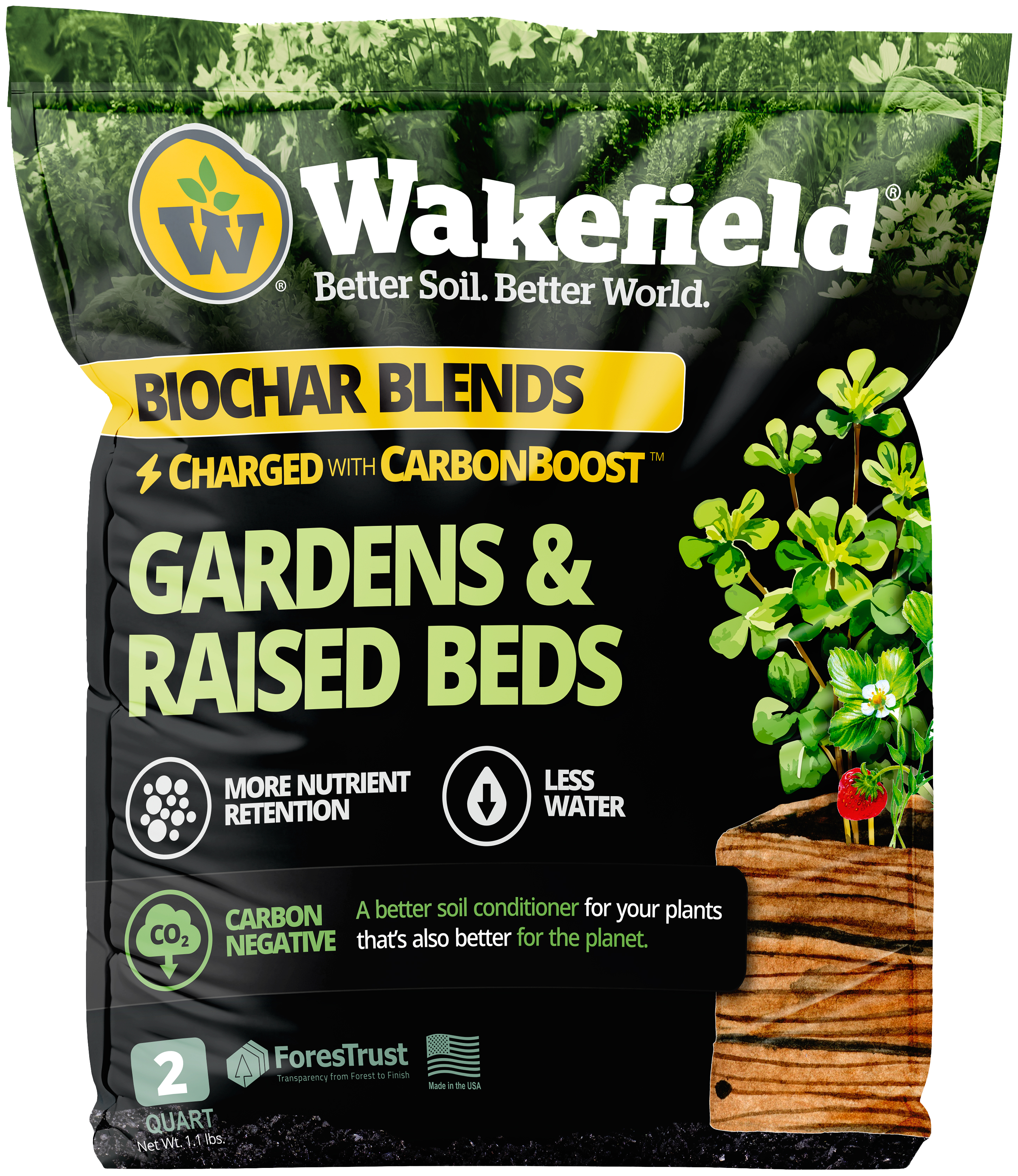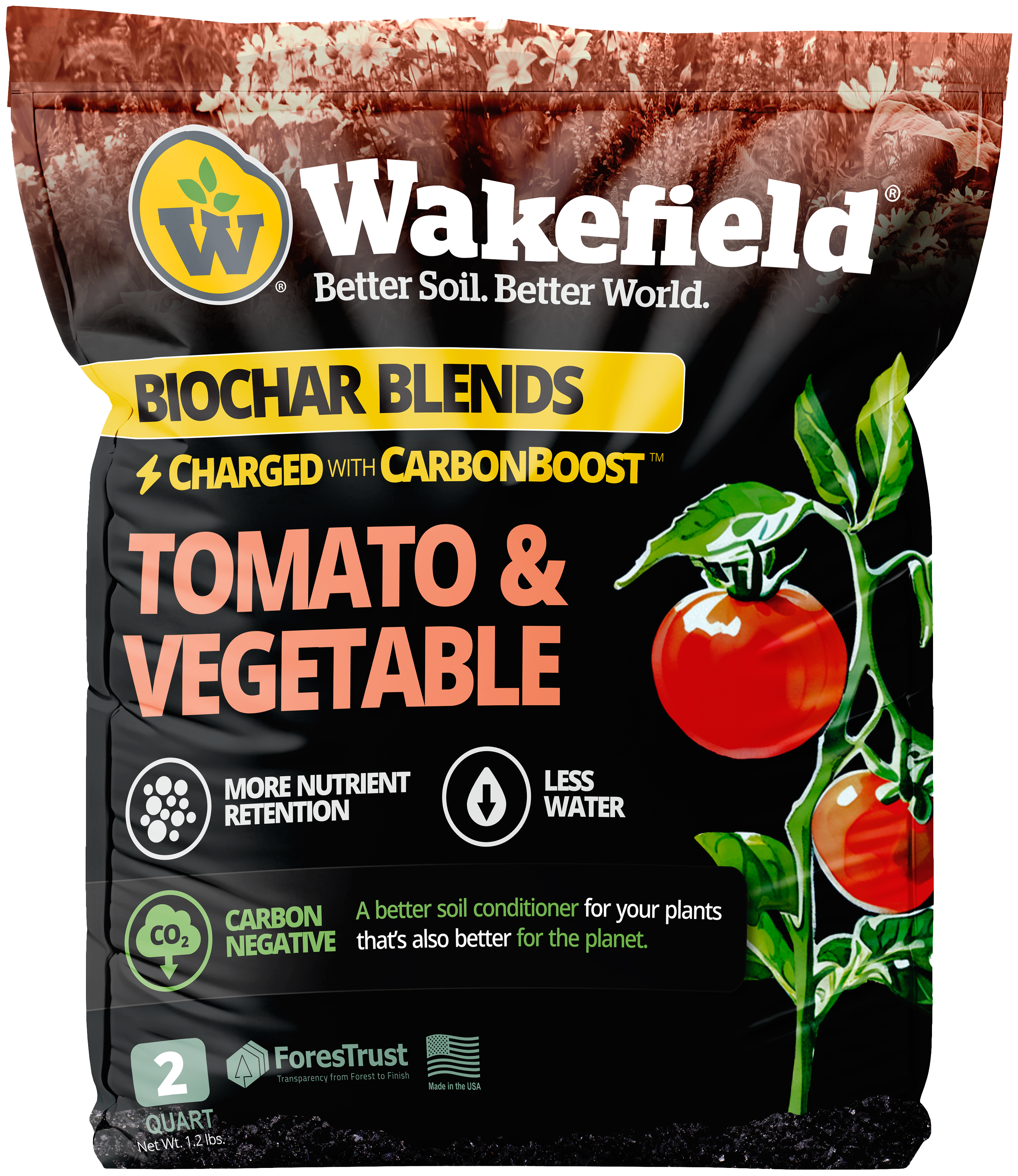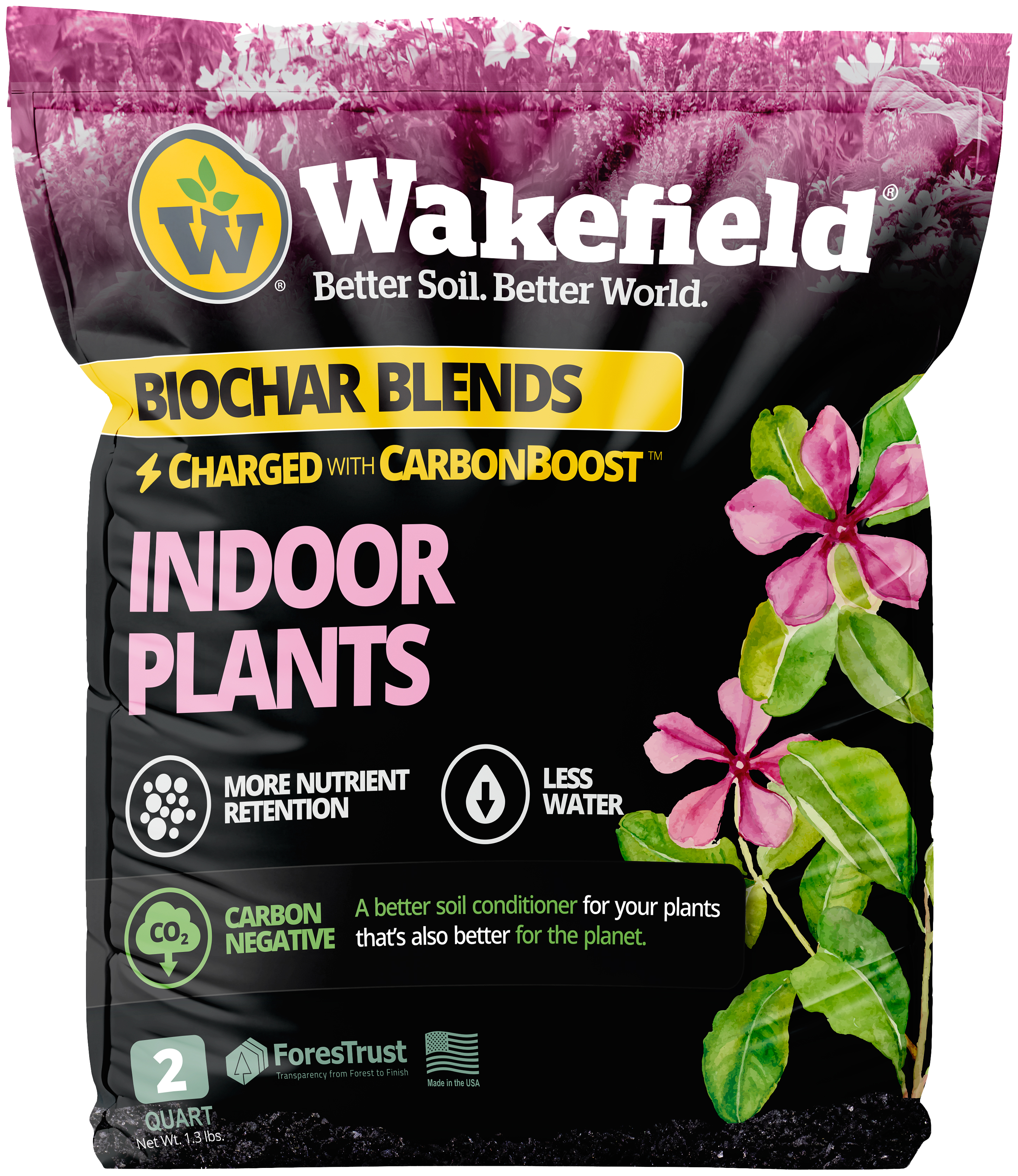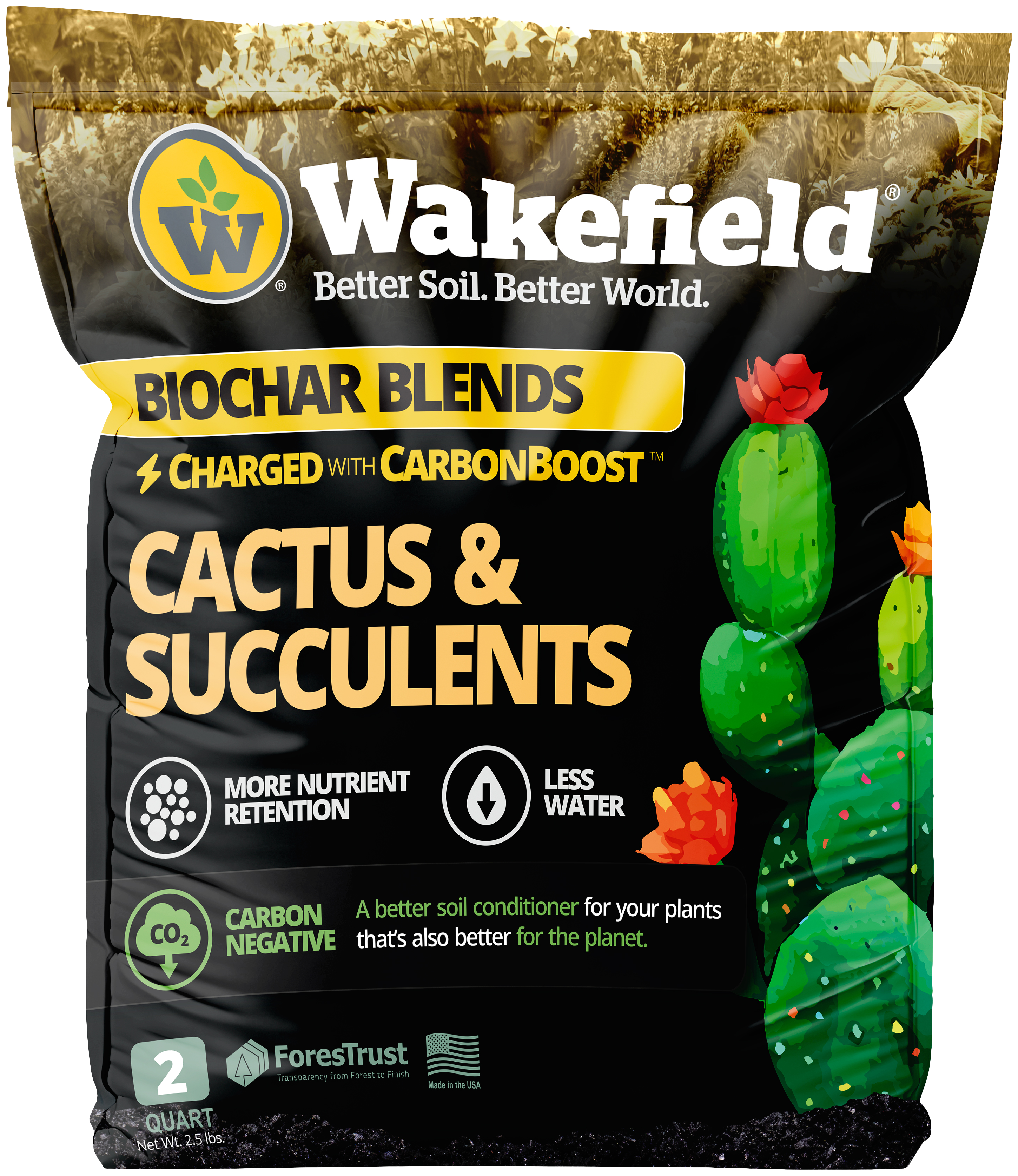
A better soil conditioner for your plants,
that's also better for the planet.
Wakefield Biochar and Biochar Blends supercharge soil health, helping plants thrive and projects flourish. By enhancing water retention and reducing fertilizer needs, our eco-friendly products deliver unmatched results while cutting greenhouse gases—a win for your plants and the planet.
Find us online at Amazon, Walmart, The Home Depot, Tractor Supply Co., Lowe’s, Meijer, and others.
Boost your soil with 100% Premium Biochar. This pure, plant-based biochar improves aeration, drainage, and nutrient retention, creating a healthier foundation for plants and sustainable gardening practices. Available in 2 Quart, 4 Quart, Cubic Foot, and Super Sack bags.
Wakefield Biochar Premium Soil Conditioner with CarbonBoost™ enriches soil with biochar, humic acid, and microbes. Boost nutrient retention, water efficiency, and microbial activity for thriving plants. Sustainable and CO₂-reducing, it’s perfect for gardens, lawns, and pots. Make it 10% of your soil mix for vibrant growth year-round! Available in 2 Quart, 4 Quart, Cubic Foot, and Super Sack bags.
Boost your garden with Biochar Blends for Gardens & Raised Beds. This sustainable mix enriches soil, enhances water retention, and promotes healthy plant growth with compost, humic acid, and CarbonBoost™. Available in 2 Quart, 4 Quart, and Cubic Foot bags.
Grow better tomatoes and vegetables with Biochar Blends for Tomato & Vegetable. This sustainable mix enriches soil, retains moisture, and promotes healthier, more productive plants with compost, humic acid, and CarbonBoost™. Available in 2 Quart and 4 Quart bags.
Care for your houseplants with Biochar Blends for Indoor Plants. This eco-friendly mix enriches soil, retains moisture, and promotes healthy indoor plants with compost, pine bark, worm castings, and CarbonBoost™. Available in 2 Quart and 4 Quart bags.
Support your succulents and cactus with Biochar Blends for Cactus & Succulents. This eco-friendly blend enriches soil, improves drainage, and promotes healthy growth with compost, pumice, coarse sand, and CarbonBoost™. Available in 2 Quart and 4 Quart bags.
Discover More With Wakefield
Ready to take your soil to the next level? Explore our site for helpful resources:
- Visit the Learning Center for expert tips and insights.
- Use the Biochar Calculator to plan your next project.
- Have questions? Click the CharBot icon in the bottom-right corner for instant help.
Together, we can make better soil—and a better world!
